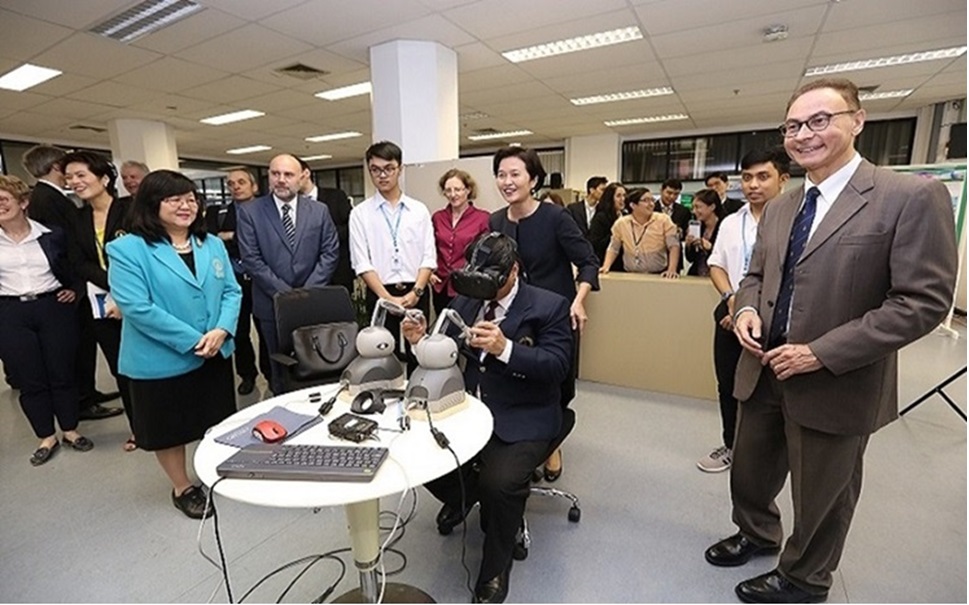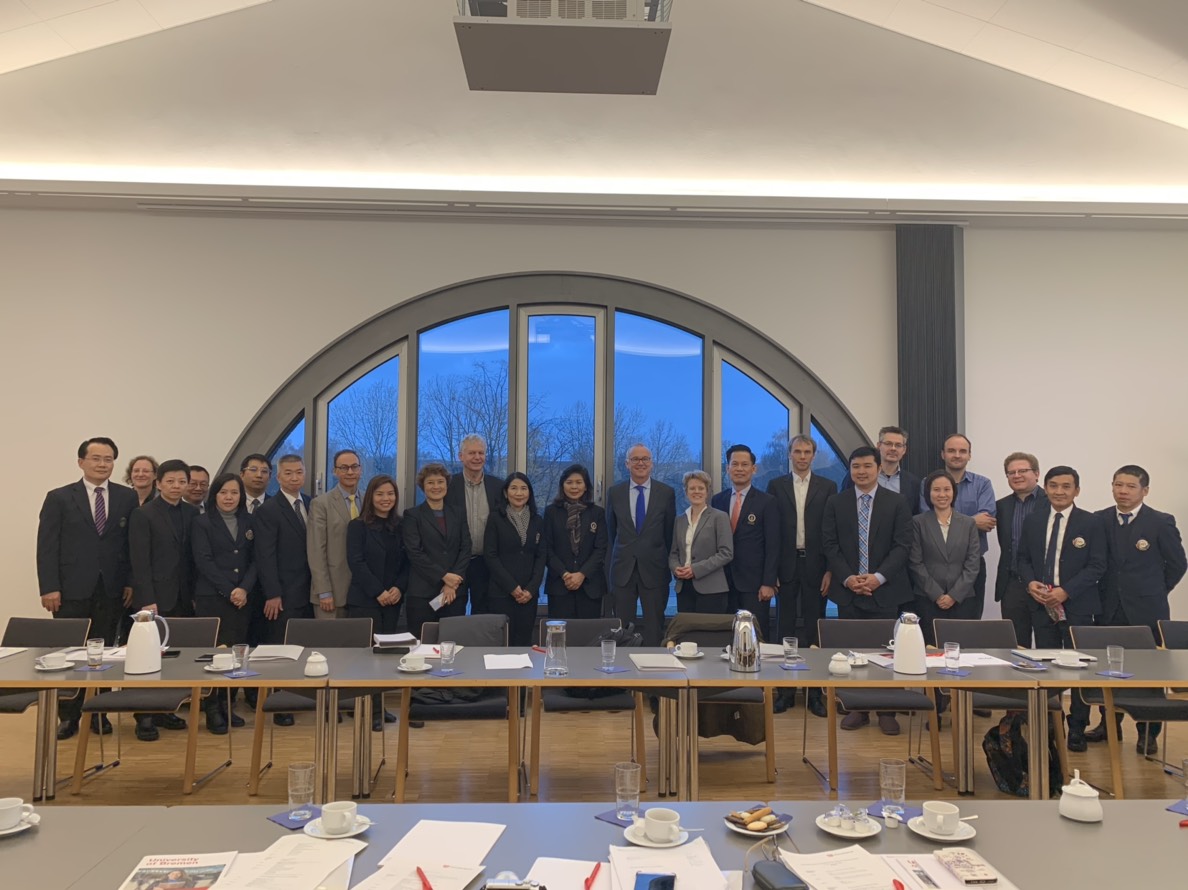Mosquitos mostly use their auditory system to recognize the species and sex of other mosquitos. This has been proven based on behavioristic and neurologic experiments. This ability is amazing since most of the frequencies that mosquitos create lie outside their own hearing range. It is evident that they do not respond to the frequencies themselves, but to nonlinear distortion products and combination tones between their own wing beat sound and the sound of other flying mosquitos. Based on mechanical, acoustical, and neurological considerations, we are creating an analogue model of the mosquito’s plumose antenna to calculate the afferent neural activity evoked by the scolopidia in the Johnston’s organ when exposed to sound. The model successfully creates some of the nonlinearities that help mosquitoes identify the sex and species of other mosquitoes. The model output can serve as a bio-
inspired feature for automatic classification of mosquito sex and species. Applying machine learning with conventional audio features from the field of speech recognition and music information retrieval we observed good species discrimination abilities. However, we believe that bio-inspired features for mosquito species and sex recognition are more robust against environmental noise. Thus, they can contribute better to fighting malaria, dengue fever, and other mosquito-borne diseases.
Tim Ziemer*, Myat Su Yin#, Chaitawat Sa-Ngamuang#, Julia Koch*, Mahmoud Siai*, Benny Berkhausen*, Deniz Efe*
This email address is being protected from spambots. You need JavaScript enabled to view it., This email address is being protected from spambots. You need JavaScript enabled to view it., This email address is being protected from spambots. You need JavaScript enabled to view it., This email address is being protected from spambots. You need JavaScript enabled to view it., This email address is being protected from spambots. You need JavaScript enabled to view it., This email address is being protected from spambots. You need JavaScript enabled to view it., This email address is being protected from spambots. You need JavaScript enabled to view it.
*University of Bremen, Bremen Spatial Cognition Center, Bremen, Germany
#Faculty of Information and Communication Technology, Mahidol University, Thailand





 As part of the annual Joint International Tropical Medicine Meeting (
As part of the annual Joint International Tropical Medicine Meeting (